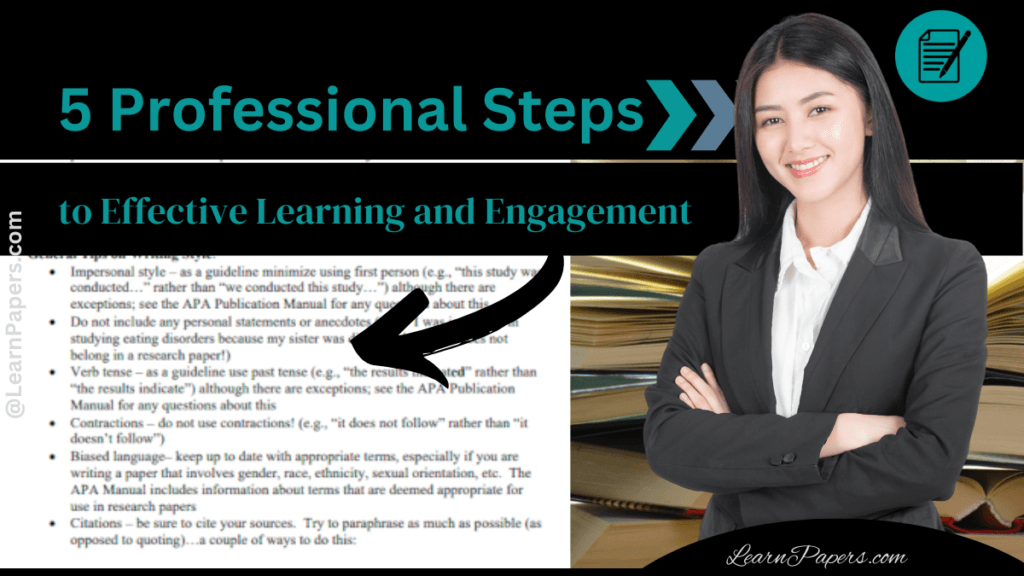Research papers are the backbone of academic progress and innovation. They provide detailed insights into various subjects, helping you expand your knowledge and critical thinking. But let’s face it—reading research papers can feel overwhelming at times. With technical jargon and lengthy content, they may seem intimidating. Fear not! This guide will walk you through the process of understanding and engaging with research papers in an approachable, professional, and enjoyable way.
Why Research Papers Are a Treasure Trove of Knowledge
Research papers are not just dense text—they are wellsprings of discoveries. They encapsulate years of hard work, experiments, and studies that contribute to developing knowledge in a field. Whether you’re a student preparing for a thesis, a professional staying current, or simply curious about a topic, research papers empower you with validated and reliable information.
The more you learn to navigate and utilize them, the better equipped you’ll be to discuss, critique, and apply this knowledge to real-world situations.
Steps to Read and Understand Research Papers Like a Pro
You don’t need to read a research paper line by line to understand it thoroughly. The following structured approach can save time and ensure you grasp the most relevant information:
1. Start with the Abstract and Conclusion
The abstract summarizes the entire research paper. It provides a glimpse into the objective, methods, key findings, and implications. Similarly, the conclusion distills the study’s major takeaways. These two sections are great starting points for determining whether the paper aligns with your interests or goals.
2. Break Down the Paper into Manageable Sections
A typical research paper includes an introduction, literature review, methodology, results, discussion, and references. Instead of tackling everything at once, focus on one section at a time. The introduction and literature review are great for understanding the context, while the methodology and results dive into the technical aspects.
3. Highlight Key Points and Take Notes
As you go through each section, highlight critical information and jot down notes. Write your observations in your own words—this not only boosts comprehension but also helps when you need to reference the material later.
4. Decipher the Data and Figures
Graphs, charts, and tables may look complicated but are treasure troves of information. Take your time interpreting the data presented. Look for patterns, relationships, or anomalies and tie them back to the paper’s core findings.
5. Review the Discussion for Context
The discussion section ties everything together, explaining how the results contribute to the field and why they matter. This section often points out limitations and suggests areas for future research, giving you a broader perspective on the topic.
Why Connecting with Authors is a Game-Changer
Research papers often include contact information for the authors, and reaching out can be a rewarding experience. Authors can offer deeper insights and answer questions you might have after reading their work. Plus, building relationships with researchers can expand your professional network.
How to Reach Out Professionally
- Be Polite and Concise: Start with a brief introduction and explain your reason for contacting them.
- Show Genuine Interest: Highlight what you liked about their research and why you found it valuable.
- Ask Specific Questions: Avoid vague queries; focus on points you genuinely need clarification on.
Using platforms like LinkedIn or ResearchGate can make initiating these conversations easier and more natural.
How to Retain What You Learn from Research Papers
Once you’ve read and understood a research paper, retaining the information is the next challenge. These tips can help:
1. Summarize the Paper in Your Own Words
Writing a summary forces you to process and internalize the information. Use simple language to explain the key points, as if you’re teaching someone else.
2. Create Visual Notes
Mind maps, flowcharts, or infographics can make the material more engaging and easier to remember. They also provide a quick reference when you revisit the topic later.
3. Discuss with Peers or Mentors
Talking about the paper with others enhances your understanding and often brings up perspectives you hadn’t considered. Join study groups or online forums related to your field to spark meaningful discussions.
4. Revisit Your Notes Regularly
Frequent reviews of your notes can solidify your understanding. Spaced repetition—revisiting information at increasing intervals—can be particularly effective for long-term retention.
Tips for Applying Insights from Research Papers
Reading research papers isn’t just about understanding—it’s about application. Here’s how you can put your newfound knowledge to use:
1. Implement Findings in Projects
Use the insights from research to guide your academic, professional, or personal projects. This not only validates your understanding but also showcases your ability to apply theoretical knowledge practically.
2. Stay Curious and Keep Exploring
Every research paper opens doors to more questions. Dive deeper into related topics or explore cited references for broader knowledge.
3. Use Insights to Build Thought Leadership
Share what you’ve learned through blog posts, presentations, or online discussions. This not only reinforces your understanding but also establishes you as a knowledgeable voice in your field.
Overcoming Challenges While Reading Research Papers
Even seasoned academics can struggle with dense or overly technical papers. Here’s how to overcome common hurdles:
- Struggling with Jargon? Look up unfamiliar terms as you go. Resources like glossaries or online academic dictionaries are invaluable.
- Lost in Details? Focus on the paper’s main arguments and findings. Avoid getting bogged down in technical specifics unless necessary.
- Time-Consuming? Set aside dedicated reading time and break the paper into manageable chunks to avoid fatigue.
Conclusion: Unlocking the Potential of Research Papers
Engaging with research papers doesn’t have to be intimidating. By following a structured approach, asking the right questions, and practicing active learning, you can unlock a wealth of knowledge that supports your academic or professional growth. Research papers are more than just academic requirements—they’re gateways to innovation and intellectual curiosity.
Remember, every paper you read takes you one step closer to becoming an expert in your field. So grab a cup of coffee, find a quiet spot, and start exploring at learnpapers.com!
